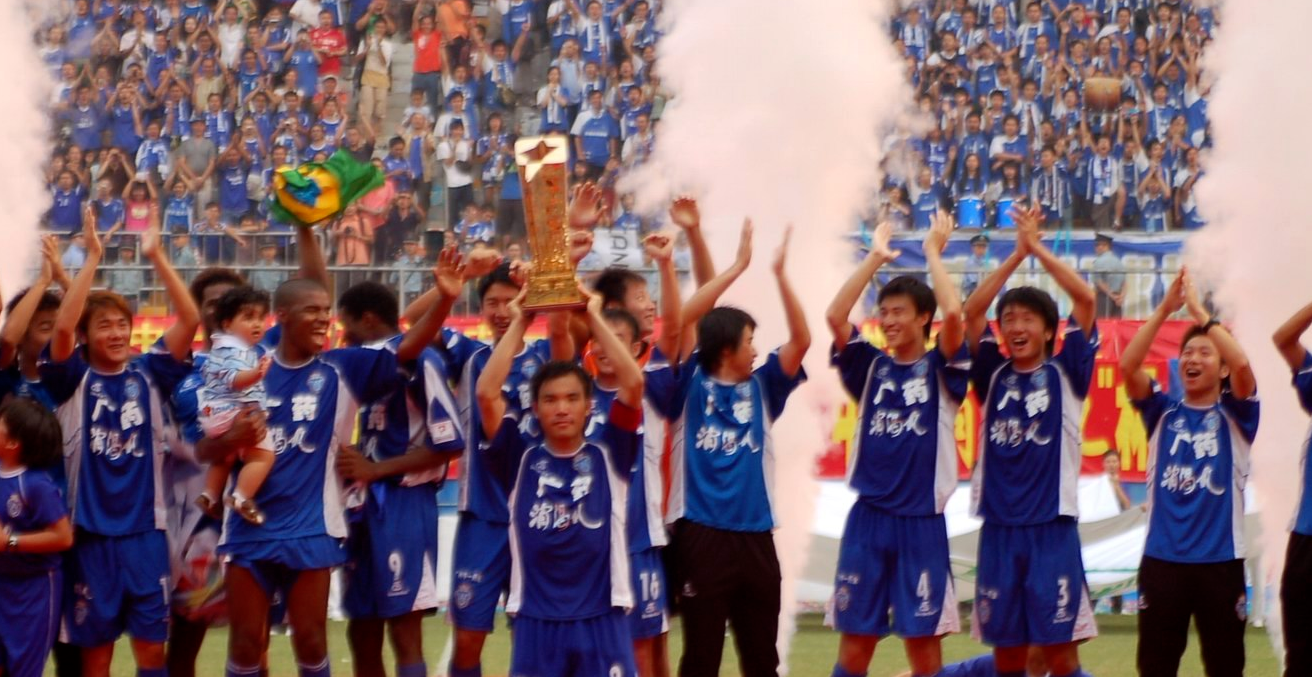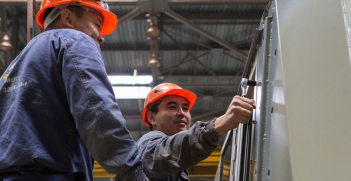The Demise of Guangzhou FC and the Changing Political Economy Environment in Chinese Professional Football

The most successful football club in China, Guangzhou FC, is on the verge of collapse. Political and economic actors have significantly impacted this development of professional football in China.
Guangzhou FC, also known as Guangzhou Evergrande Taobao Football Club is, the most successful football club in China – a two-time winner of the Asian Football Confederation Championship. Yet it is now on the verge of collapse because of the financial crisis of its parent company, Guangzhou Evergrande Group. After selling a few Brazilian football stars and terminating the contract of its head coach, Fabio Cannavaro, the club still had no money to pay its players. Therefore, players in Guangzhou FC have had to train, practice, and play games without payment. In order to survive, the club is requesting a government bailout. It has been revealed that the Guangdong government is considering taking over a ten to 15 percent stake in the club, and the rest of the club might be sold to a state-owned enterprise.
If the government takes over the club, it might be an optimal solution for Guangzhou FC. Some other Chinese professional football clubs have not been that lucky. For instance, the 2020 Chinese Super League (CSL) championship winning team, Jiangsu FC, formerly Jiangsu Sunning, ceased its operations due to the financial crises of its owner. Cannavaro’s former club, Tianjin Quanjian, also folded because of its owner’s financial problems. In total, six clubs left the professional football league right before the 2021 season due to financial hardship. Moreover, out of the total 16 CSL clubs, eleven clubs held back wages to their players in the 2021 season.
The Chinese youth football training system has also faced significant difficulties. In 2012, Evergrande Group built the world’s largest football school in partnership with Real Madrid. However, after nine years, this school has not provided any players for the national team. Instead, in the Asian section of the 2022 FIFA World Cup qualification, four naturalised players were selected to play for the China Men’s National Football Team.
The concept of political economy and sport is based on the extension of production-consumption relations, and it can be used to analyse the relationship among sport development, mega events, politics, economics, media, as well as tourism. Global and regional political actors, in addition to economic actors, decide how sport is produced and consumed. Both politics and sport matter in economic processes and outcomes and have the capacity to impact a country’s tradition, culture, identity, as well as people’s lifestyles. The political economy context in different cultures has brought modern changes in economic, political, and cultural relationships that are both a consequence and a component of international sport. By adopting the concept of political economy and sport and examining the political economy context of the Chinese Super League, we can better understand the development of professional football in China.
Factors that Caused the Crises
COVID-19 was the first factor that impacted the political economic environment of the professional football league in China. This pandemic has caused the majority of the world’s countries to experience a period of recession. Although policies for strict virus control and emergency relief for business helped China become the only major economy to grow in 2020, COVID-19 still largely impacted professional football in China. Due to COVID-19, the 2020 CSL was postponed by five months, and there were significantly fewer matches because the Chinese Football Association (CFA) changed to a two-phase format rather than the traditional home-away format. All 16 clubs had to play on neutral grounds in the cities of Dalian and Suzhou. As a result, the cumulative viewership for the 2020 season decreased by 23 percent from the 2019 season.
Another factor that changed the political economic environment of professional football in China is the policy change for real estate. In order to improve the country’s financial health, the People’s Bank of China and the Ministry of Housing imposed a strict policy that aimed to improve the financial health of the country’s real estate sector in August 2020. This policy outlines a set of thresholds regarding the three financial ratios which regulate Chinese real estate companies’ debt, also known as the “three red-lines.” The direct purpose of the policy is to cap real estate developers’ borrowings. If a company doesn’t follow those guidelines, their financial channels will be shut down altogether. Unfortunately, as China’s second-largest property developer, Evergrande Group is “overleveraged” and fails to meet two of the three borrowing limits. In addition to Guangzhou FC, most of the CSL clubs’ parent companies are property companies, and consequently, most of the CSL clubs were greatly impacted.
A new policy of the CFA also brought hardship to those CSL clubs. Under the new policy, all the professional football clubs need to change their names to a non-commercial name. This policy impacted the investors’ interest because clubs’ parent companies could no longer directly promote their brand with their CSL clubs.
A Possible Solution: Mixed Ownership
After the end of the 2020 season of the CSL, Henan Jianye FC, one of the oldest Chinese professional football clubs, sought help from the local government due to its financial problems. Central China Real Estate, the company that owned the club, entered negotiations with two municipal governments in Henan Province. Finally, the club changed its name into “Henan Songshan Longmen FC,” and the ownership was changed from a two to a three-part ownership, including its former owner as well as two state-owned companies from two local cities, Zhengzhou and Luoyang. Although the club will play its home games in two different cities, these three shareholders will secure the funds for the club.
However, not all clubs could successfully find investors from their local government. For example, before the 2021 season, the investor of Tianjin Tiger FC called off its investment, and the local sport administration of Tianjin had to temporarily take charge of the club so that Tianjin Tiger FC could survive. After half of the season, the club still has not found any potential investors.
Conclusion
Chinese professional football has been in the vanguard of sports reform in China, and the burst of the bubble shows the government’s determination to stabilise the development of the sport industry. Nevertheless, there is no doubt that the CSL will not be as attractive as before. Additionally, in the next few years, it is certain that we will not see many world-class stars playing China.
After a decade of rapid growth, the pace of football development in China has slowed down due to many reasons. While the CSL clubs are facing financial problems, the Chinese National Football Team is still struggling in the World Cup qualifying competition. With the addition of five naturalised players, the average age of players in China’s national team is over 30. Moreover, the problem of the youth football training system in China is becoming more and more serious. In recent years, the government has no choice but to place their hopes on the “Campus Football System,” which plans to find football talent in schools rather than the professional football system.
Running football clubs while burning through cash and failing to build a sustainable institution is not an effective way to develop professional football in emerging sport markets. Stakeholders should therefore adjust to the political and economic environment of the market.
Dr John Nauright is Dean of the Richard J. Bolte School of Business at Mount St. Mary’s University in the USA. He is a leading expert on global sport and global sport politics. He also directs the Global Rugby Leadership Institute. He has authored and edited many award-winning works including The Political Economy of Sport; Global Markets and Global Impact of Sports; Sport in Australasian Society; and Sports Around the World.
Hongxin Li is an Assistant Professor at the College of Physical Education at Zhengzhou University of Light Industry in Zhengzhou, China.
This article is published under a Creative Commons License and may be republished with attribution.




